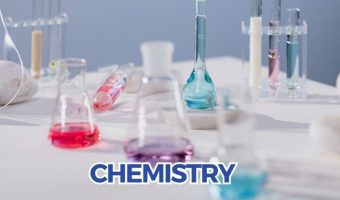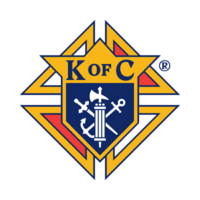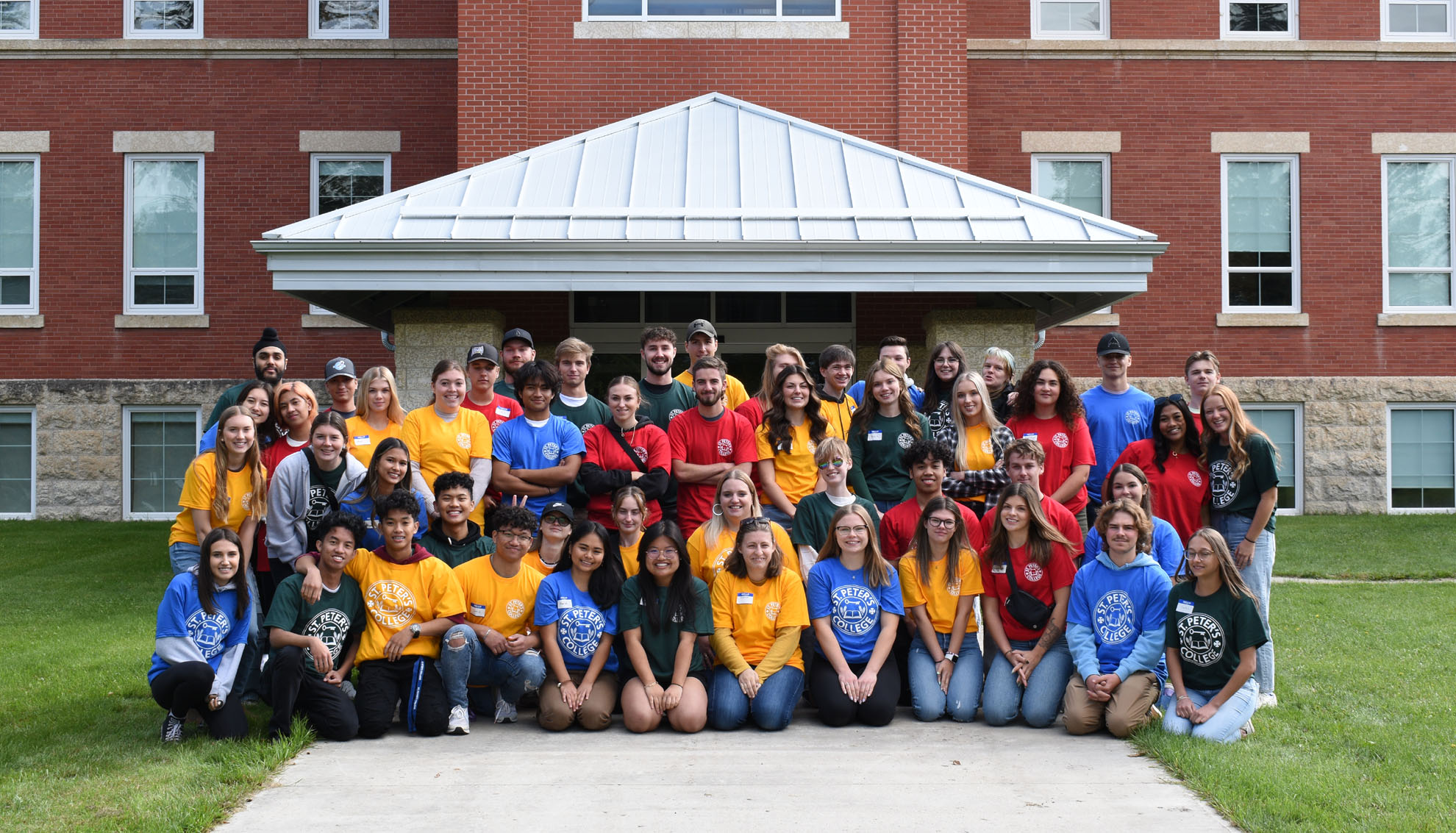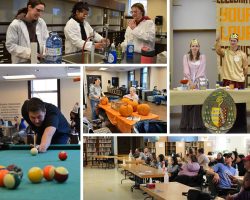About This Program
Chemistry focuses on what happens to matter at the molecular and subatomic levels. In other words, it is the study of how virtually everything in the world really works. Chemists are at the forefront of scientific discovery in a wide variety of fields such as medicine, drug discovery, nanotechnology, new material design and the environment.
Upon completion of the first year, many St. Peter’s College students move to the U of S main campus to continue their studies. In some instances, students can complete the second year of studies with St. Peter’s College. St. Peter’s students must meet the same promotion standards as U of S students in order to move into the second year of study. Please contact Student Services for more information on promotion standards. Further information on this program can be found directly on the University of Saskatchewan’s website.
What you will Learn
You will learn how molecules interact, how and why chemical reactions occur and how to control these processes. You will learn how to find answers to important questions such as: how do we harvest light to make energy, how do we build molecules that cure disease and how do plants protect themselves from pathogen attack? Through appropriate course selection, you can specialize in analytical, bioorganic, computational, inorganic, organic, organometallic, physical or theoretical chemistry.
First Year Classes
| Term 1 | Term 2 |
|---|---|
|
|
Tuition Estimates
| Canadian | International | |
| Tuition | $6,894 | $24,820 |
| Fees | $300 | $300 |
| Books | $1,000 – $1,500 | $1,000 – $1,500 |
| Total | $8,194 -$8,694 | $26,120 -$26,620 |
Tuition will vary depending on the type and number of classes you take in a year. This estimate reflects a typical amount you could expect to pay in your first year if you enroll in a full course load, the maximum number of courses allowed.
Fees are used to fund specific student benefits.
The cost of books and supplies varies widely depending on the courses you choose. It is recommended that you budget between $1,000-$2,000 per year.
*BASED ON THE RATES DISPLAYED ON OUR TUITION PAGE
Careers
A degree in chemistry opens the door to a diverse array of employment opportunities, including jobs in the pharmaceutical and petrochemical industries, the environmental and material sciences and in emerging areas such as nanotechnology. At the same time, chemists develop critical thinking and problem solving skills that make them attractive to employers in careers outside science such as law and business.
Here are just a few examples of career opportunities:
- Professional chemist
- Analytical chemist
- Environmental chemist
- Process chemist
- Research and development scientist
- Intellectual property researcher
- Science policy advisor
- Forensic lab analyst
- Quality control and quality assurance
- Occupational health and safety officer
- Chemical information specialist
- Paint formulation chemist
- Food and drug analyst
- Mining chemist
- University instructional lab coordinator
- Laboratory manager
Admission Requirements and Deadlines
Deadlines
St. Peter’s College Deadline:
Students already accepted into their program at the University of Saskatchewan may begin classes at St. Peter’s College anytime before the deadline for registration changes (mid-September and mid-January)
University of Saskatchewan Deadline:
The full list of deadlines for each college at the University of Saskatchewan can be found at the programs specific requirements and deadlines page on their website.
Required High School Classes
- Foundations of Mathematics 30 or Pre-Calculus 30
The high school classes that are required for admission purposes are not always the same as classes you will need to complete the degree program you choose. For example, if you want to minor in chemistry, you will need high school chemistry to take your first-year university classes.
Required Grade Average
Applications are considered up until the deadline. Admission is offered on an ongoing basis until all seats are filled. Applicants who do not meet the admission average but otherwise qualify for admission may be placed on a waitlist.
At the discretion of the college, applicants who had been placed on a waitlist may be offered admission based on their place in the waitlist (determined by admission average).
Minimum admission average: 70%
Learn how we calculate your admission average. If you do not meet the minimum admission average, you may be considered for the Transition Program or for special (mature) admission.
English Proficiency
If your first language in not English, you may have to prove proficiency in English before admission. It is expected that applicants interested in this program are fluent in English.
Ready to apply?
Students must apply and be accepted to the University of Saskatchewan and St. Peter's College. The University of Saskatchewan requires a non-refundable application fee of $90 CDN before your application will be processed. St. Peter's College will process your application at no charge.
Search
Related Programs

